Using Assessment to Inform Teaching and Teacher Training
 INTRODUCTORY
INTRODUCTORY
See also our Guidance for Teachers on Classroom (Formative) Assessment
If teaching is to be as effective as possible, teachers need to have a clear picture of students’ learning needs, as well as being equipped with the skills and resources to meet those needs.
Effective teachers understand that all students are at a different level of learning and that they need to adapt their teaching to meet the needs of different students. This is very difficult for teachers to do, however, especially when there are very large numbers of students at different grade levels in one class (as is often the case in many South Asian countries).
Assessment can have a significant positive impact in supporting teachers in their work. But simply expecting teachers to do assessment in their classroom or school will not lead to positive results. Most teachers have not received sufficient training in how to develop and use assessment in their teaching practice, and some have received no training at all.
Equally, simply giving teachers results from examinations or large scale assessment and expecting that they will be able to interpret the data and then covert it into practice is also problematic. In most cases teachers have no idea what to do next.
Therefore, assessment can support teachers but only if is designed to meet the context in which teachers work and to provide them with information in a way that helps them to improve their practice. Importantly, any assessment activity should incorporate capacity development that helps teachers gain the skills and knowledge they need to both create and use assessment in their professional practice
For those people whose job it is to provide teachers with the support that they need – including policy makers, education administrators and district officials – results from assessment should NEVER be used to reward or punish teachers. Many factors contribute to student performance and most of these (such as family background and nutrition) are completely beyond the control of teachers. Instead, assessment data should be used to identify how to better support teachers. For example:
- If students in certain schools perform poorly on assessment, this indicates that those schools require more resources, more support and that teachers may require some opportunities for professional learning;
- If students are performing poorly in a particular subject or skill – such as reading – this indicates that a review of the curriculum, textbooks and teacher training may need to be undertaken to find ways to better support skill development among students;
- If students at a particular year level are performing poorly, this may indicate the need to review their progress in previous years in order to understand where their weaknesses lie or to undertake a review of the curriculum and textbooks in order to find ways to better scaffold learning; and
- If students from a particular language group are performing poorly, this may indicate the need to ensure that teachers or para-teachers are available who speak the same language fluently and/or to review the provision of learning materials in that language.
In all of these examples, finding ways to support teachers is extremely important. Good teachers are those who receive ongoing opportunities for professional learning throughout their careers. Ideally this involves asking teachers about the skills or knowledge that they would LIKE to develop and then providing appropriate training and support over an extended period of time to help them develop these. In addition, data from assessment programmes can also help to identify priority areas, for example helping teachers to learn a range of approaches to encouraging student to apply knowledge to real world challenges.
Moreover, initial teacher training is compulsory in most countries and is a good opportunity for teachers to learn the fundamental skills and knowledge that they will require in their teaching careers. Assessment data can be used to support reforms to initial teacher training, for example by placing greater emphasis in the teacher training curriculum on certain skills, such as how to encourage problem solving among students.
To find out more about how assessment data can inform teaching training and professional learning, go to #Intermediate.
 INTERMEDIATE
INTERMEDIATE
” You should look at this section if you already know about how assessment data can be used to inform teacher training and professional development but would like to know more.”

High-quality educational assessment data is fundamental to improving teaching practice and student learning. When teachers understand where students are in their learning, they are able to identify where they need to go next and adjust their teaching to support further student learning and growth. Teachers cannot achieve these changes alone, however.
Good teaching practice involves regular assessment of students, both formative and summative. But most teachers have received little training in how to develop or implement assessment or what to do with assessment data. As a result, assessment in classrooms and schools very often simply becomes a ‘tick-box’ exercise in which assessment takes place, but with such poor quality and lack of follow up that it adds no value to learning and teaching at all.
This means that it is important that education policy makers, education administrators and education officials provide as much support as possible to help teachers expand their skills in assessment. Teachers need extensive and sustained opportunities for professional learning in how to assess students (not only through examinations and formal tests but also through the wide array of formative assessment practices that they can use in their daily teaching). These skills and knowledge can be referred to as ‘assessment literacy’ and are important for teachers to gain.
Education policy makers, administrators and officials should also make sure that assessment tools that are developed are able to provide teachers with information that they can use. For example, an assessment that tells a teacher that a student scored 70% on a test is not very helpful – 70% of what? Which questions did the student find hard? Why did the student make those mistakes? Instead, high quality assessment can provide deep and meaningful information to teachers, including about the underlying misconceptions that cause student mistakes. This can help teachers to better target problematic concepts, for example.
Data from large scale assessment – including at the international, regional, national and state or provincial level – is designed to support system accountability and improvement. This means that instead of giving teachers the data and expecting them to make changes, the data needs to be interpreted by those responsible for supporting and training teachers – including policy makers and educational administrators. If particular areas of weakness are identified in the education system, these will not be able to be resolved by teachers unless the processes, systems and resources that create the context in which they work are in alignment.
This points to the need for senior educational stakeholders to draw on data from education assessment to help inform improvements in the provision and resourcing of teacher training and professional learning. Initial teacher training may need to be re-thought, for example by increasing the emphasis on student-centred approaches to learning and paying greater attention to the incorporation of 21st century skills.
Large scale assessment data can be used to support resource allocation policies targeted at professional development of teachers and school principals. For example, if results demonstrate significant gaps in student literacy, the decision could be to allocate additional resources to supporting teachers within schools, or to reconsider the curriculum, textbooks and learning resources that are provided.
To find out more about how assessments can help support improvements in teacher training and professional learning, go to #Advanced.
 ADVANCED
ADVANCED
“You should look at this section if you are already familiar with how assessment data can help support a culture of improvement driven by evidence among teachers and would like to know more.”
High quality education is characterised by educational practices in which a culture of improvement driven by evidence is central. To achieve this, teachers need to be provided with the training, opportunities for professional learning, support and resources they require to integrate insights from assessment into their professional practice. In many countries teachers do not have the support or training that they need and this is likely to mean that student learning will not improve.
The Pratham approach to ‘Teaching at the Right Level’ illustrates how assessment can be used in a positive way to support relevant and quality teaching that is appropriate in disadvantaged. (https://www.teachingattherightlevel.org/the-tarl-approach/assessment/). Assessment is fundamental to this approach, which ensures that assessment data is immediately acted on; that achievable yet challenging goals are set (and progress against them tracked using assessment); that foundational skills are prioritised; and that assessment data is aggregated and used to support schools and teachers.
Assessment of teachers is another way in which assessment can help support improvements in the quality of education. For example, the World Bank’s Systems Approach for Better Education Results (SABER) has an open-source classroom observation tool called Teach that can be used in primary classrooms to help monitor and enhance teaching quality.
In addition to supporting teachers to conduct professional learning outside the classroom it is important to support and empower teachers to conduct their own professional learning in the classroom. Action research is a method of systematic enquiry, in which the teacher becomes the researcher of their own practice. In education, action research can be conducted by a single teacher, a group of collaborating teachers, a department or school. Action research generally involves the following:
- Clarifying a starting point or area of teaching that needs to be changed
- Identifying research questions and examining wider available literature
- Implementing research project
- Collecting and interpreting data
- Use findings to inform teaching practice
Action research contributes to the building of professional cultures, in which educators commit to ongoing reflection, learning and development as a practitioner and become responsible for being the agent and source of change.
About the guidance levels
